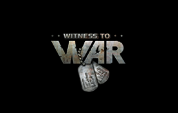2:12 | Dick Francisco recalls taking a shrapnel wound while on a bombing run over the South China Sea. Provided by Sal Strom.

Dick Francisco recalls taking a shrapnel wound while on a bombing run over the South China Sea. Provided by Sal Strom.